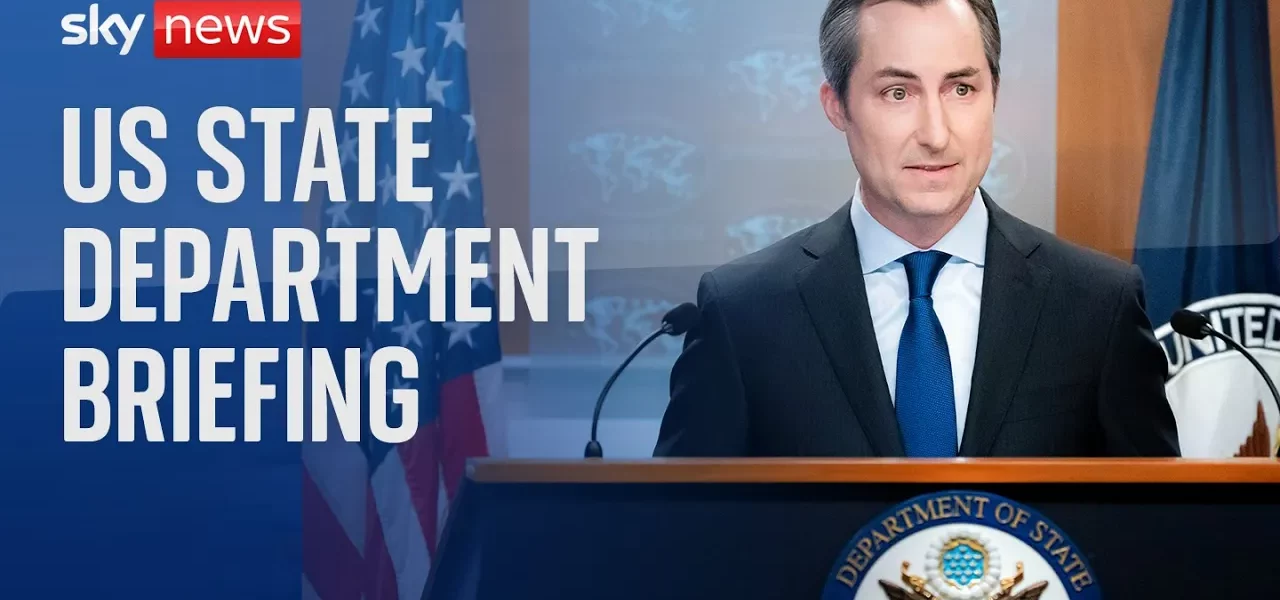Iran Launches Missile Attacks on Israel: US Response and Geopolitical Implications

This article delves into the recent escalation of conflict between Iran and Israel, examining the missile attacks launched by Iran and the responses from the United States and its allies. We analyze the implications for regional stability and the diplomatic efforts underway to de-escalate tensions.
Introduction
On a significant day in Middle Eastern geopolitics, Iran launched nearly 200 ballistic missiles targeting various locations in Israel. This brazen act has drawn immediate condemnation from the United States, which has reaffirmed its strong support for Israel’s security. The U.S. response to this aggression is critical, not only for Israel but for the broader Middle Eastern stability and U.S. foreign policy in the region.
Overview of the Missile Attacks
The missile attacks on Israel represent a marked escalation in Iran’s military strategy. These actions have raised alarms in the international community, prompting a coordinated response from the United States and its allies. Notably, U.S. officials, including Secretary of State Antony Blinken and President Biden, were engaged in monitoring the situation as it unfolded.
Details of the Attack
- Time of Attack: The missile strikes occurred around 12:30 PM Eastern Time.
- Targets: Various strategic locations in Israel were targeted, although specific details remain limited.
- U.S. Assessment: Initial assessments indicate that Israel, with support from the U.S. and its partners, successfully intercepted many of the missiles.
Immediate Reactions
The U.S. government acted swiftly, issuing directives for American personnel in Israel to shelter in place. Fortunately, reports indicated no damage to U.S. facilities or casualties among American citizens, although there was one report of a Palestinian casualty in the West Bank.
The U.S. Response to Iranian Aggression
The U.S. has a long-standing commitment to Israel’s security, described as “ironclad” by officials. The response to Iran’s missile attacks is multifaceted, involving both military and diplomatic strategies.
Military Support and Coordination
- Monitoring the Situation: U.S. officials, including the National Security team, are closely monitoring the developments.
- Coordination with Israel: There is ongoing communication with Israeli counterparts regarding potential responses to the attacks.
- Preparedness for Escalation: The U.S. has indicated that there must be consequences for Iran’s actions, although specific measures are still under consideration.
Diplomatic Efforts
Diplomatic measures are equally critical in addressing the conflict. The U.S. continues to advocate for de-escalation and has urged all nations to condemn Iran’s actions. The aim is to foster dialogue and prevent further military actions that could lead to a broader conflict.
Geopolitical Implications of the Attacks
The missile attacks and the subsequent U.S. response have significant implications for regional stability and U.S. foreign policy.
Impact on U.S.-Iran Relations
The attacks have further strained relations between the U.S. and Iran, complicating diplomatic efforts that have been underway for years. The U.S. has long warned about Iran’s support for terrorist organizations across the Middle East, and this latest incident underscores the risks posed by Iranian aggression.
Regional Stability Concerns
The potential for a wider conflict in the Middle East is a pressing concern. The U.S. has prioritized preventing a full-scale regional war, which has been deemed a significant risk since the outbreak of violence following Hamas’s attacks on Israel. The current situation necessitates careful navigation to avoid escalation.
Conclusion
The missile attacks by Iran on Israel represent a significant escalation in an already tense geopolitical climate. The U.S. response, characterized by strong support for Israel and a commitment to regional stability, highlights the delicate balance that must be maintained. As the situation develops, it is crucial for the U.S. and its allies to engage in diplomatic efforts to de-escalate tensions and address the root causes of conflict. We encourage readers to stay informed on this evolving story as it unfolds.
Read more about U.S.-Iran relations and the impact on Middle Eastern stability.
“`




